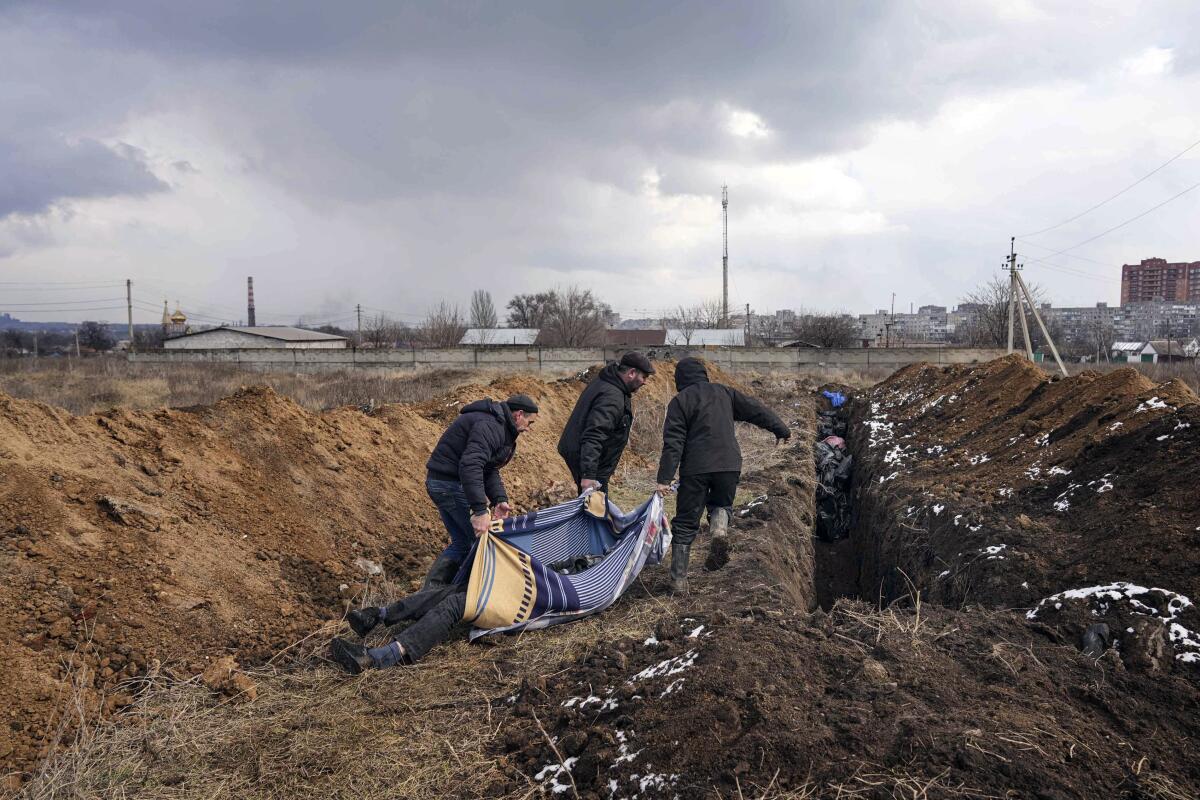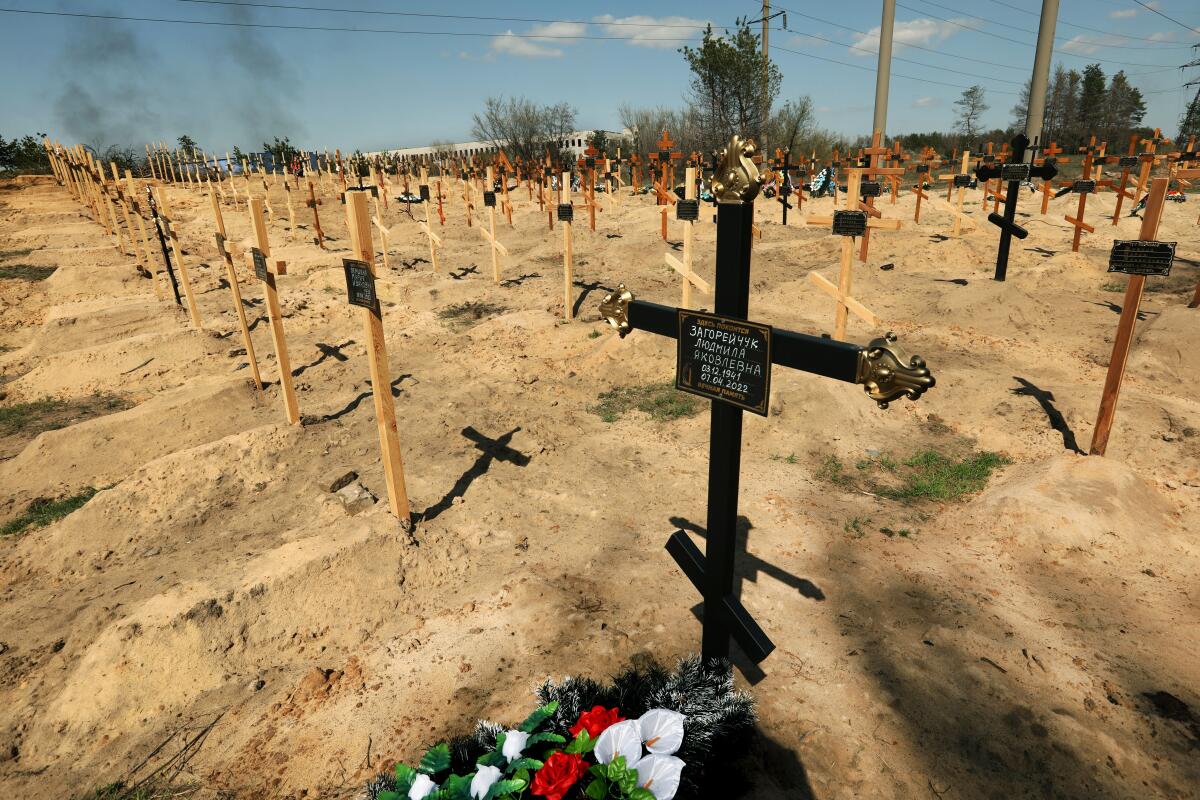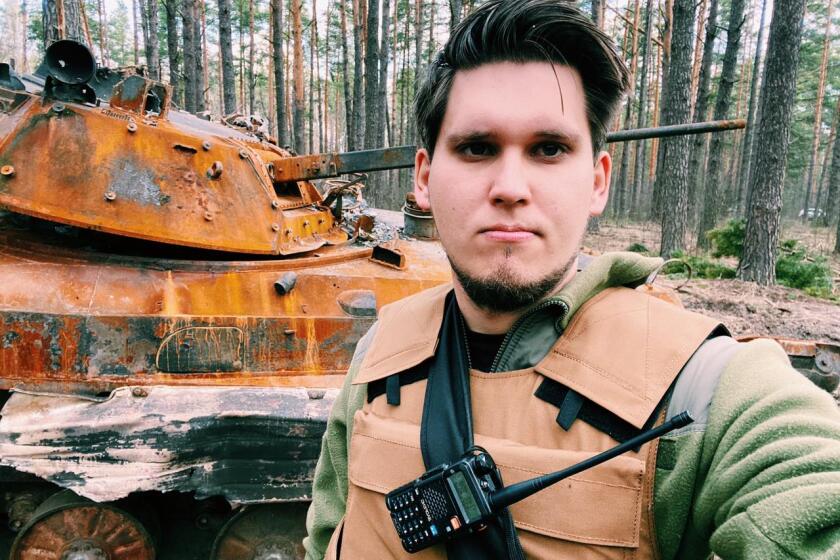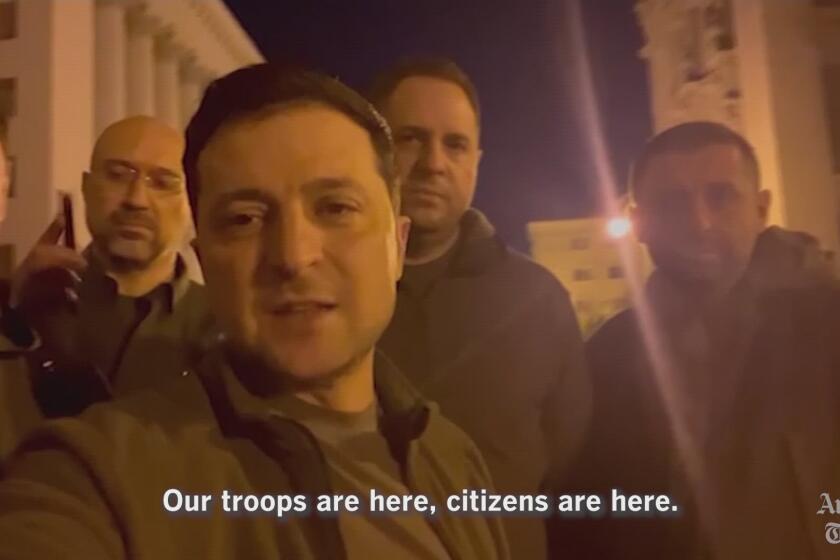Mariupol on the brink of falling as Ukrainian fighters defy Russian surrender order

A Russian deadline for Ukrainian troops to surrender in Mariupol came and went Sunday in a battle whose outcome could change the course of the war.
SEVERODONETSK, Ukraine — A Russian deadline for Ukrainian troops to surrender in the devastated port city of Mariupol came and went Sunday in a pitched battle whose outcome could change the course of the war.
A few thousand Ukrainian fighters bunkered in the Azovstal steel plant were offered a chance to lay down their arms, the Russian Defense Ministry said. But the Ukrainian side appears to have rejected the offer, and Russia’s military warned that troops who refused “will be destroyed.”
In an address to the nation, Ukrainian President Volodymyr Zelensky acknowledged that the strategic coastal city was on the verge of being lost, saying Ukraine’s troops were outnumbered 6 to 1 and the situation there “remains as severe as possible.”
Russia’s military escalation in eastern Ukraine is battering villages, forcing evacuations and filling graveyards with the newly fallen. It is a fight that will decide Ukraine’s future.
“Russia is deliberately trying to destroy everyone who is there,” said Zelensky, who also warned that Ukraine may walk away from peace talks with Russia if it continues to commit atrocities in the city.
Mariupol, which has endured almost two months of fighting, has become one of the starkest examples of Moscow’s brutal tactics in the invasion of its smaller neighbor. Officials say more than 20,000 people have been killed there. An estimated 100,000 civilians remain in siege conditions, with no food, water or heating, local officials and aid groups say.

Ukrainian Foreign Minister Dmytro Kuleba said remaining Ukrainian soldiers and a large group of civilians “are basically encircled by the Russian forces.” The badly damaged city “doesn’t exist anymore,” Kuleba said, speaking on CBS’ “Face the Nation.” “They decided to raze the city to the ground at any cost.”
Still, Mariupol has become a symbol of defiance for Ukrainians for refusing to bow even as many of its buildings lie in ruins and its people are buried in mass graves.
A takeover of the city, which lies on the Sea of Azov, would be a significant victory for Russia in a war largely marked by its forces’ missteps. A win there would not only provide a land bridge from the east to Russian-annexed Crimea, but would also free up Russian forces to move north and link up with the other thrust of the Russian offensive coming from the city of Izyum, some 144 miles north, and complete their encirclement of eastern Ukraine’s Donbas region, the stated objective of the second phase of Russia’s invasion.
The escalating battle for Mariupol comes as Russian troops press their offensive on cities and towns in the east. On Sunday, the United Kingdom’s Defense Ministry said Russia was deploying additional combat and support equipment from Belarus to locations close to Kharkiv and Severodonetsk in Ukraine.
Ukraine war heroes: A student spiriting supplies to soldiers. A DJ answering calls about the missing
More than 4.6 million Ukrainians have fled since Russia invaded, but millions more have stayed to help defend their country. These are their stories.
“Russian artillery continues to strike Ukrainian positions throughout the east of the country” as part of what the Defense Ministry said was a shift “in its operational focus.”
Officials said two people were killed in an attack on a residential building in the town of Zolote, in the eastern Luhansk region. They said Russian shelling on central Kharkiv, the second-largest city in Ukraine, killed five people and wounded dozens more.
Among those injured in the attack on Kharkiv were four people working for chef José Andrés’ World Central Kitchen — a nonprofit that provides meals in places suffering from war and natural disaster — according to the organization.
“This was a big hit, as you can see,” Nate Mook, chief executive of the group, said in a Twitter video as he panned across dozens of mangled cars and badly damaged apartment buildings. “Just a tremendous amount of carnage left behind for no reason. People live here, people work here, people cook here.”
Ukrainian officials said they had tried and failed to reach a cease-fire agreement with Russia to create an evacuation corridor that would allow civilians to escape fighting in the eastern and southern parts of the country on Sunday.
At the same time, Russia continued striking other parts of the country in what it has described as retaliation for Ukrainian attacks on Russian territory. Sunday morning brought fresh reports of explosions in Kyiv and the western city of Lviv.
The capital, which was heavily bombarded at the outset of the war, had enjoyed a period of relative peace after Russian forces broke off an offensive in Ukraine’s north this month. Lviv, which has become a western outpost for aid organizations and displaced families fleeing toward Poland, had seen only sporadic attacks.
The renewed assaults came after Russia was humiliated by the sinking of its most important warship in the Black Sea. Ukraine says its forces struck the ship — an assertion backed by U.S. officials — although Russia maintains the ship was not attacked and sunk while being towed to port after suffering a fire.
The invasion of Ukraine has spawned a deluge of online content that has helped counter Russian disinformation and changed how we understand war.
Meanwhile, in the eastern city of Lysychansk, a few miles from the front line with Russian forces and one of the easternmost points of Ukrainian control, a tense calm pervaded as residents went about their morning shopping ahead of Palm Sunday.
But in nearby Severodonetsk, workers brought a fresh batch of corpses in body bags to the southern edge of the city, even as a bulldozer dug out a fresh furrow in the expanding cemetery. Once workers heaved the bodies into the grave, the bulldozer pushed the displaced earth over them.
It was hard and dangerous work, said Michael Padgaynyi, a white-haired volunteer with a humanitarian organization in town who was sweating in the morning sun.
“We’re every day under artillery shelling. Some people from our personnel have been wounded,” he said, pleading for sets of body armor so they could do their grim work with some measure of safety.
In the distance, a volley of artillery could be heard.
“We’re just waiting for the big offensive from the Russian side,” he said.
Moments later, a truck drove up to the cemetery, bringing another group of bodies to be buried.

Even amid worldwide prayers for peace in the conflict as Christians around the world celebrated the Easter holiday Sunday, hopes for a diplomatic resolution were fading.
Kuleba, speaking to CBS, echoed Zelensky in saying that Russia’s siege of Mariupol may be a “red line” in the path of peace talks. “After Bucha, it became particularly difficult to continue talking with the Russians,” Kuleba said, referring to the suburb of Kyiv where Russian troops are accused of raping and executing hundreds of civilians.
Meanwhile, multiple European leaders said it is increasingly apparent that Russian President Vladimir Putin is unlikely to acquiesce anytime soon.
“I am beginning to think that those people are right when they say, ‘It is useless to talk to him; it’s just a waste of time,’ ” Italian Prime Minister Mario Draghi said in an interview with a local newspaper.
Austrian Chancellor Karl Nehammer, who met with Putin last week, told NBC that Putin repeats Russian propaganda that Ukraine sparked the war by committing genocide against Russian speakers in Ukraine’s east.
One thing is certain, Nehammer said. Putin “believes he is winning the war.”
Bulos reported from Severodonetsk and Linthicum from Mexico City.
More to Read
Sign up for Essential California
The most important California stories and recommendations in your inbox every morning.
You may occasionally receive promotional content from the Los Angeles Times.















